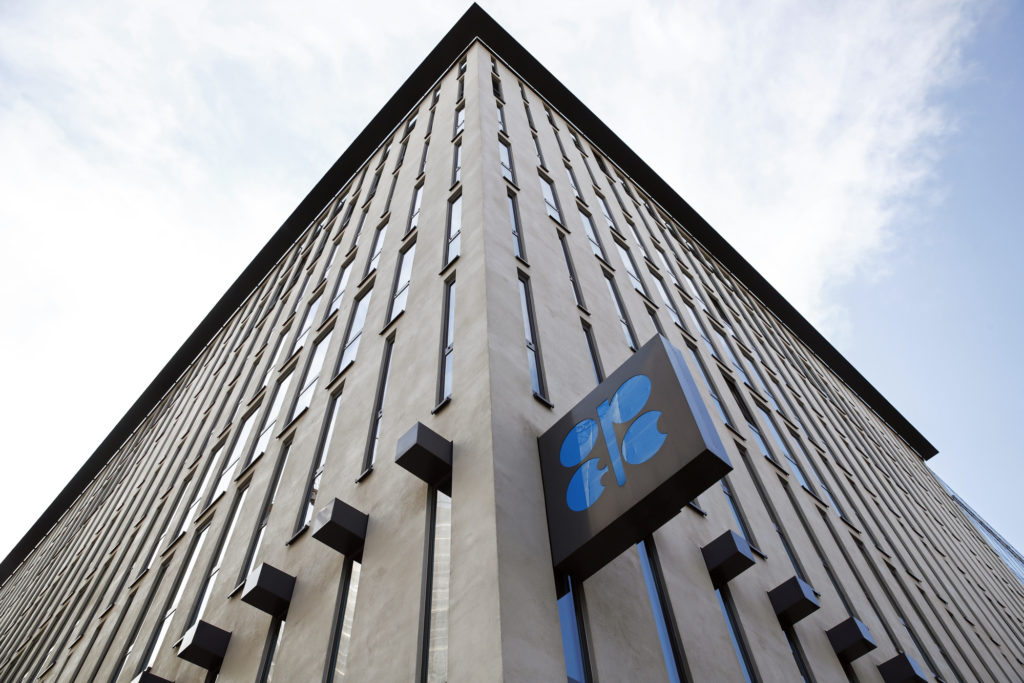
Opec countries are meeting to find a way to support the falling price of oil, with analysts predicting the cartel will agree to cut production by at least one million barrels per day.
Crude prices have been falling since October because countries like the US and Saudi Arabia are producing at high rates and due to fears that weaker economic growth would dampen energy demand.
The price of both benchmark US crude and the standard for internationally traded oil fell 22% in November.
The oil minister of Saudi Arabia said on Thursday that the country was in favour of a cut of one million barrels a day.
“I think a million will be adequate personally,” Khalid Al-Falih said upon arriving to the meeting in Vienna.
He clarified that that would cover production for both Opec countries as well as non-Opec countries, like Russia, which have in recent years been co-ordinating their production limits with the cartel.
His Iraqi counterpart, Thamir Ghadhban, said: “I am optimistic that the agreement will stabilise the market, will stop the slide in the price [of oil].”
Investors did not seem convinced, however, and were pushing the price of oil down sharply again on Thursday, partly due to broader concerns that a trade war between the US and China could escalate and hurt global growth.
The fall in the price of oil will be a help to many consumers as well as energy-hungry businesses, and US President Donald Trump has been putting pressure publicly on Opec to not cut production.
He tweeted on Wednesday that “Hopefully Opec will be keeping oil flows as is, not restricted. The World does not want to see, or need, higher oil prices!”
Experts say this week’s meeting of the Organisation of the Petroleum Exporting Countries will influence the price of oil over the coming months.
How strongly it does so could depend on Russia’s contribution, which will be determined in a meeting on Friday.
Analysts at Commerzbank estimate that if Russia is willing to step up its production cuts, Opec and non-Opec countries could trim production by a combined 1.3-1.4 million barrels a day.
This “would be enough to rebalance the oil market next year”, they wrote in a note to investors.
While Saudi Arabia has indicated it is willing to cut production, its decision may be complicated by President Trump’s decision to not sanction the country over the killing of dissident journalist Jamal Khashoggi.
US Senators say, after a briefing with intelligence services, that they are convinced that Saudi’s de-facto ruler, Crown Prince Mohammed bin Salman, was involved in Mr Khashoggi’s death.
Some experts say that gives the US some leverage over the Saudis, though Mr Al-Falih denied that on Thursday.
When asked if the Saudis had permission from President Trump to cut production, Mr Al-Falih replied: “I don’t need permission from any foreign governments.”
Recommended for you
